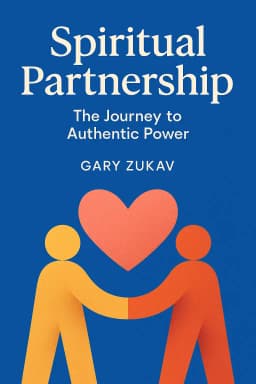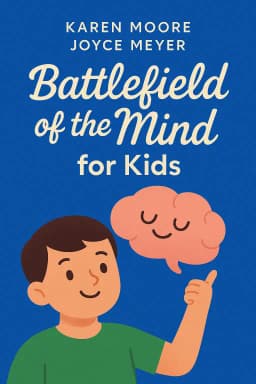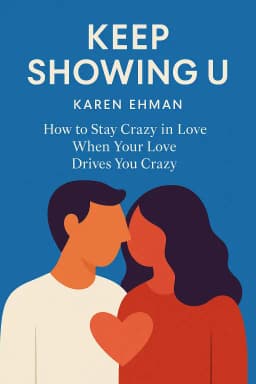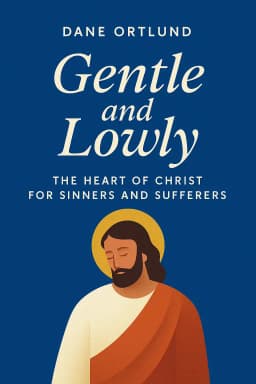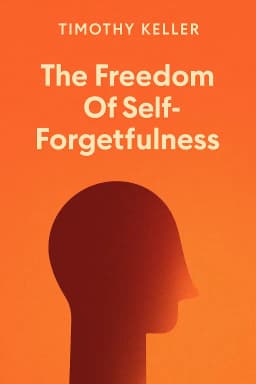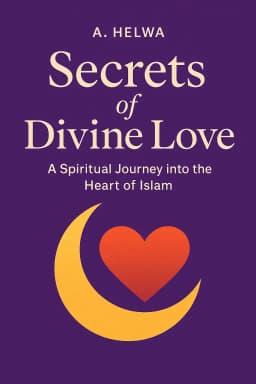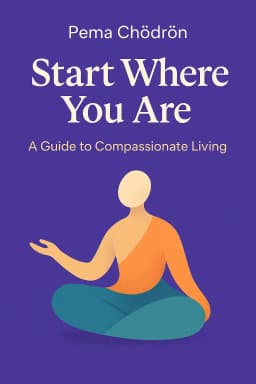
When Truth Costs Everything
A Memoir
Golden Hook & Introduction
SECTION
Daniel: We're often told to 'speak your truth.' But what if your truth costs you everything? Your community, your career, your identity. Sophia: That’s a terrifying thought. It’s one thing to be brave when people are cheering you on. It’s another thing entirely when your truth makes you an outcast. Daniel: Exactly. Today, we're exploring a story where speaking up wasn't just brave—it was an act of self-demolition, and maybe, resurrection. That's the heart of the story in Beth Moore's memoir, All My Knotted-Up Life. Sophia: And for anyone who doesn't know, Beth Moore is a giant in the American evangelical world. For decades, she was the queen of women's Bible study, a pillar of the Southern Baptist Convention. Daniel: Absolutely. And what's fascinating is that this book is her first full, personal narrative, written right after her very public and painful break with the denomination that made her famous. It became an instant bestseller, but it’s also been praised by outlets like Time Magazine for its sharp compassion and humor, comparing it to The Glass Castle but for a faith-based audience. Sophia: Wow, that's high praise. It suggests it’s not just a story for insiders. Daniel: Not at all. And her story starts, not with theology, but with a terrifying childhood memory at the beach that sets the stage for everything that follows.
The Knotted-Up Foundation: Family, Trauma, and Faith
SECTION
Daniel: The book opens with this incredibly vivid scene. She's a little girl, at the beach for the first time, and she gets caught in an undertow. She’s being pulled out to sea, clinging to her father’s ankle, and her only thought is, "Whatever you do, don’t let go." Sophia: That’s a powerful opening. It’s such a primal fear. But what really struck me was the aftermath. Her father eventually pulls her out, but no one seems to grasp the terror she just experienced. Her mother just wraps her in a towel and asks, "You cold, honey?" Daniel: That disconnect is everything. It’s the perfect metaphor for her childhood. This constant, churning chaos underneath a surface that people tried to keep calm. She describes her family as "fierce and frightful," a place of deep love and deep pain, all tangled together. Sophia: And that disastrous family camping trip she recounts is the perfect example. It’s almost comical, but it’s also so stressful to read. Eight of them packed into a VW bus, a father determined to prove he can camp, and it all ends with the tent collapsing in a thunderstorm. Daniel: It’s a scene of pure chaos. And it leads her to one of the central themes of the book. She writes, "All my knotted-up life I’ve longed for the sanity and simplicity of knowing who’s good and who’s bad." She wanted life to fit into clean categories, but her family was a living contradiction. Sophia: But it's more than just messy, right? There's real trauma here. The book is incredibly candid about the sexual abuse she suffered from her father. How does she even begin to tell that story? Daniel: Very carefully, and with a lot of grace. She doesn't dwell on graphic details, but she makes the impact crystal clear. There’s this one chilling story about him driving her to an orthodontist appointment. On the way back, he pulls her over in the car seat and abuses her. She says, "Maybe a dad can do a lot of things and a child can think he’s still okay in other ways, but not the kind of things my dad did to me... He was a no-count dad. Only dad I had." Sophia: That is just heartbreaking. To hold those two thoughts at once—"he's the only dad I have" and "he's a no-count dad"—that's the knot right there. And it’s a knot that seems to follow her into every other part of her life. Daniel: It absolutely does. And it’s complicated further by her mother's own struggles with severe mental illness. There are these harrowing scenes of her mother disappearing, and the kids having to form a "three-car train" just to sneak into her room to make sure she was still alive. Sophia: Wow. So she’s navigating her own trauma while also trying to care for her mother and protect her younger siblings. It’s an impossible amount of weight for a child to carry. Where did faith fit into all of this chaos? Daniel: That’s the other paradox. The church, for her, was a genuine refuge. It was the second place she spent the most time, after school. She describes her baptism at age nine with such tenderness. It was a place of order, community, and genuine spiritual encounter, even while her home life was falling apart. Sophia: So the church was a sanctuary. But I’m guessing, based on the title, that even her faith journey wasn’t a simple, straight line. Daniel: Not even close. That knotted-up foundation, that mix of love, trauma, chaos, and faith, follows her right into adulthood, even as she starts building this massive, world-renowned ministry. It’s this incredible paradox of public success and private agony.
The Unraveling: Ministry, Marriage, and Mental Health
SECTION
Sophia: It’s a classic story in some ways, isn't it? The public figure whose private life is in turmoil. But with Moore, it feels different. She’s not just a celebrity; she’s a spiritual guide for millions of women. Daniel: And that's what makes her story so compelling. Her ministry starts in a very humble, almost accidental way—leading an aerobics class at her church. But her gift for teaching is undeniable, and it grows exponentially. She partners with Lifeway, the publishing arm of the SBC, and starts doing these "Living Proof Live" events in huge arenas. Sophia: So on the outside, she’s a massive success. But what’s happening behind the scenes? Daniel: Behind the scenes, she’s married to Keith, a man she loves deeply but is, in her own words, fundamentally incompatible with. They have different views on almost everything. But more than that, Keith is carrying his own profound trauma. Sophia: I remember reading about this. The garage explosion when he was a toddler, right? Daniel: Yes. A horrific accident where his older brother died. It left Keith with deep-seated PTSD and, as they would later learn, bipolar disorder. Moore has this gut-wrenching line where Keith tells her, "Lizabeth, life is harder for some people than others." It’s a simple statement, but it captures the immense weight he carried. Sophia: And that weight becomes almost unbearable after a freak accident. Daniel: A completely random event. He’s fishing, gets pricked by a redfish spine, and develops a rare, flesh-eating bacterial infection. The cocktail of antibiotics needed to save his hand and arm essentially nullifies his psychiatric medications and triggers a complete mental and physical breakdown. Sophia: I can't imagine the weight of that. She's on stage, teaching thousands of women about faith and hope, while at home, she's watching her husband disappear into a catatonic state and questioning God's love herself. Daniel: It’s the ultimate test of her faith. She describes a moment, walking in the woods, where she just screams at the sky, "GOD, WHY DON’T YOU LOVE MY HUSBAND?" She says she felt like she loved Keith more than God did. It’s one of the rawest, most honest admissions of spiritual crisis I’ve ever read. Sophia: That's incredibly vulnerable. And it mirrors her own breakdown, doesn't it? The one she had after writing her first Bible study on the Tabernacle. Daniel: Exactly. She pours herself into this intense study, and the moment it’s finished, she crashes. The work had triggered her own unresolved trauma, and she enters this dark, dissociative state. She writes, "Once you’ve broken to pieces, the luxury of imagining yourself unbreakable evaporates." Sophia: So both she and her husband are in these parallel states of brokenness. It’s a testament to their love that their marriage survived. Daniel: It is. And it’s this personal experience of unraveling, of seeing how fragile life and faith can be, that prepares her for the public unraveling that was to come—the moment the world she knew, the Southern Baptist Convention, began to fall apart for her, too.
The Break and the Re-Tying: Confronting Power and Finding a New Home
SECTION
Sophia: This is the part of the story that made headlines. Her break with the Southern Baptist Convention. But it didn't happen overnight. It was a slow burn, wasn't it? Daniel: A very slow burn. For years, she felt like an outsider, even as she was one of its biggest stars. She describes the pressure to conform to a very specific model of female deference. She says she had to "turn into a pretzel" to navigate the male-dominated power structures. She’d literally stoop when talking to shorter, powerful men, or apologize for her presence. Sophia: That sounds exhausting. And she says she accepted the sexism for a long time because she thought it was about Scripture. What changed? Daniel: The 2016 election. Specifically, the release of the Access Hollywood tape, where Donald Trump brags about sexually assaulting women. For Moore, the tape itself was horrifying, but the real crisis came when she saw prominent evangelical leaders, men she knew and respected, rush to defend him. Sophia: They dismissed it as "locker room talk." Daniel: Exactly. And for Moore, a survivor of sexual abuse, that was a profound betrayal. She writes, "This was not about Scripture... This was about power. This was about control. This was about the boys’ club." And she decided she couldn't stay silent. She went on Twitter and condemned it. Sophia: And the backlash was immediate and brutal. Daniel: Vicious. She was called a heretic, a liberal, a "baby killer" for not supporting the Republican candidate. Churches cancelled her events and pulled her Bible studies from their shelves. She was attacked by the very people she had dedicated her life to serving. Sophia: That must have been incredibly isolating. And then the SBC’s own sexual abuse scandal broke. Daniel: Yes, a massive report from the Houston Chronicle detailed hundreds of cases of abuse and cover-ups within SBC churches. For Moore, this was the final, devastating blow. It confirmed her fears that the institution was more concerned with protecting its power than protecting the vulnerable. Sophia: And the final straw was something seemingly small, right? A tweet about her speaking at her own church on Mother's Day. Daniel: That was it. The tweet was interpreted by some hardliners as a challenge to the SBC's doctrine on male-only pastors. The attacks that followed were, in her words, the ones that "got through the fence" and "knocked me down in my own yard." It was personal. It was from her own people. And she knew she was done. Sophia: Her description of leaving is so powerful. "And then it was simply, horribly, plainly, unmistakably, Let go. And the current sucked me under and into the dark water and out to the middle of the sea." It’s a direct callback to that childhood drowning experience. Daniel: It brings the entire narrative full circle. She’s cast out from the only spiritual home she’s ever known. The question then becomes, where does someone go after that? How do you find a new harbor when you feel like you're lost at sea?
Synthesis & Takeaways
SECTION
Sophia: It’s an incredible journey. So, after all that—the family trauma, the personal crises, the public shunning—where does she land? Does she find any answers? Daniel: That's the beautiful, and perhaps most profound, part of the book. She makes it clear that her life isn't suddenly neat and tidy. The knots haven't all been magically untied. She writes, "Somewhere inside the balled-up, walled-up mass of tangled strands in the life of faith, the inscrutable God of heaven and earth has the loose ends tied." She doesn't get all the answers, but she finds assurance. Sophia: An assurance that she’s being held, even in the mess. Daniel: Precisely. And there's this beautiful, closing story. She and Keith build a new house in the woods, designed to look like an old country chapel. Years later, Keith revisits the area where his grandparents lived and finds the little church they took him to as a boy. And he realizes, with a shock, that it's the spitting image of the house he designed. He had unconsciously recreated this place of childhood safety and love. Sophia: Wow. That gives me chills. It’s like a hidden grace, a knot tied by a loving hand that he didn't even know was there. Daniel: That's exactly it. Her story shows that untangling the knots of our lives isn't about finding clean, simple answers. It's about learning to live with the complexity, held by a faith that's strong enough for the mess. It’s about realizing that even when you feel like you’re drowning, a hand has been holding yours all along. Sophia: It makes you wonder, what are the 'knots' in our own lives that we're trying to untangle? And who or what is holding us through it? It’s a question that sits with you long after you finish the book. Daniel: It really does. We'd love to hear what resonated with you from Beth Moore's story. Find us on our socials and join the conversation. It’s a story that invites a lot of reflection. Sophia: Absolutely. A powerful, honest, and ultimately hopeful book. Daniel: This is Aibrary, signing off.
